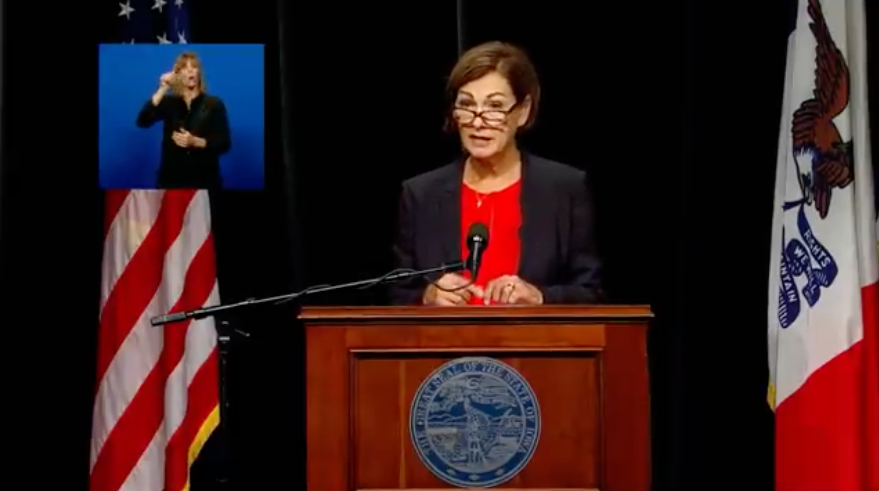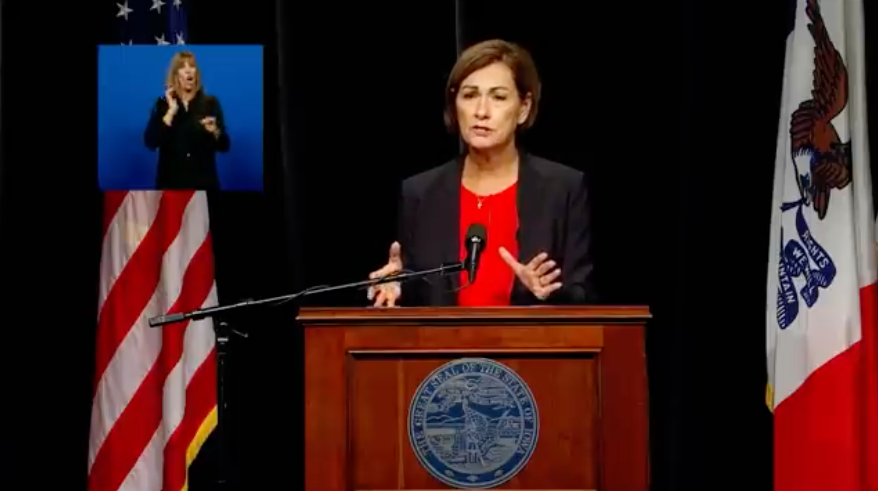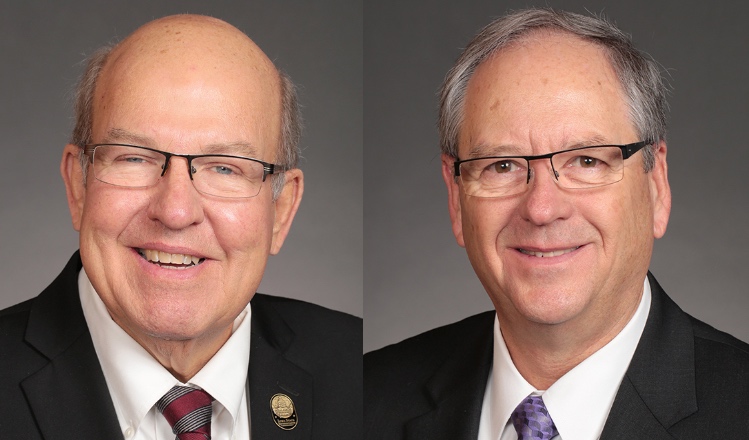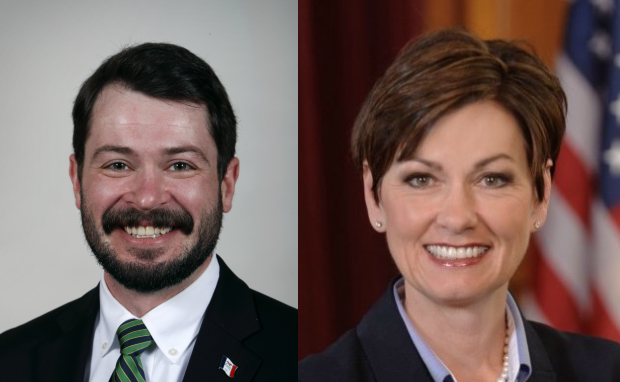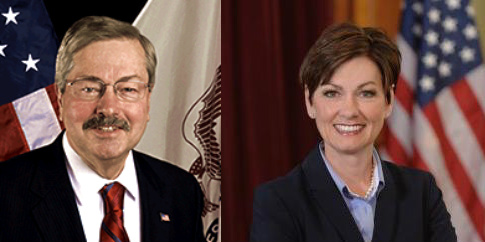Governor-elect Terry Branstad today put Debi Durham in charge of job creation for his administration. She will start as head of the Iowa Department of Economic Development, which Branstad plans to convert into a public-private partnership. Durham’s work will be crucial for some of Branstad’s central campaign promises: creating 200,000 new jobs, increasing family incomes by 25 percent, and reviewing all state economic development programs to discard ones that don’t work. Branstad has said he will travel widely to sell Iowa to the business community, and Durham will be a partner in those marketing efforts.
Durham has worked for the Siouxland Chamber of Commerce for 17 years, and “chairs the board of the Iowa Chamber Alliance, a coalition representing the chambers of commerce in the state’s 17 largest metro areas.” She told reporters that leaving Sioux City was a hard choice. Outside economic development circles, she is best known as the Republican nominee for lieutenant governor in 2002, the year Doug Gross lost to Governor Tom Vilsack. Bret Hayworth wrote a good profile of her during the 2002 campaign. Incidentally, Gross also intended to remake IDED into a public-private partnership. Yet again, Branstad is following his former chief of staff’s playbook. David Roederer, who also headed Branstad’s staff in the past and will run the Department of Management in the new administration, has worked closely with Durham too. He was executive director of the Iowa Chamber Alliance during her time as board chair.
During this year’s campaign, Governor Chet Culver said IDED already has plenty of business input and has helped keep Iowa’s unemployment far below the national average. He also cited news reports showing that the Indiana Economic Development Corporation, which Branstad embraced as a model, touted “bogus” job creation claims and concealed information about tax credits some companies received. Iowa legislators should ensure that the revamped IDED doesn’t have similar transparency problems. Branstad can’t restructure economic development programs by government directive; he needs a new state law for that.
Culver appointed Durham to the Iowa Department of Transportation Commission and “spoke highly” of her during the September gubernatorial debate in Sioux City. Assuming the Iowa Senate confirms Durham (which should be no problem), she may need to give up her position on the transportation commission. If so, expect Branstad to appoint someone friendly to road-builders’ interests.
In related news, Branstad is raising money from private donors to help pay for the transition from Chet Culver’s administration to his own. Current Iowa law set aside only $10,000, clearly not enough to cover those costs. I look forward to seeing the list of donors. People looking to preserve certain business tax breaks or economic development incentives may be eager to help the new administration.
UPDATE: From Jason Clayworth’s blog at the Des Moines Register:
“Obviously when you hear private/public partnership that is the biggest question is the transparency,” Durham said. “What I can assure you and I’m going to take my lead from Gov. Branstad. Everything about Gov. Branstad and this administration is transparent So anything that will have anything to do with any public funds or public funding will certainly meet that threshold of transparency.
One of Branstad’s key campaign promises is to create 200,000 jobs throughout the next five years. Durham acknowledged after today’s press conference that the goal is a tall order.
“I think it is a stretch goal but like I said will go to work every single day knowing that is the goal before us,” Durham said.
Iowa Citizens for Community Improvement criticized Branstad’s appointment of Durham today. Their statement is after the jump.
Continue Reading...

